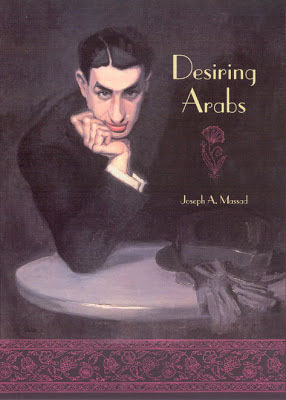
Joseph Massad: an Occidentalist’s Other Subjects/Victims
by S. Taha, The Arab Leftist
Joseph Massad, an associate professor at Columbia University and a now prominent figure in the US academic field of Middle Eastern studies, came to acquire his status through a hotly debated and highly acclaimed book, Desiring Arabs. Massad, who claims to be the disciple of another foundational academic figure from Columbia, Edward Said, seeks to complete his patron’s Foucauldian project on Orientalism. Said, who strikes me as a much more modest, engaged and consistent intellectual than his self-styled “discipleâ€, is best known for his critical study of “Orientalism,†which looks into the representation and construction of the “East/Orient†as Other to the Western/European self, a construction that, as Said had shown, was deeply engaged with the process of modern imperial expansion and colonialism. This process of domination was what both produced the European “will to know†the subject “Other†and enabled its realization “in an increasingly profitable dialectic of information and control.†However, while employing Michel Foucault’s analytical grid of power/knowledge and his methods of discourse analysis, Said’s project remains incompletely Foucauldian, since it does not probe into the effects of the colonial discursive regime of power/knowledge on the formation of the modern Arab subjects who languished under it for centuries. Therein, Massad makes his academic intervention and contribution, armed with Foucault’s conceptual tools to investigate sexual identities and subjects as effects and products of colonial power. Such territory of “subject formation†under colonialism, which Massad has ventured into is indeed an extremely slippery and delicate one, fraught with questions of agency and subjectivity, since it is not only an investigation into the workings of colonial power, but rather into the very subjectivity and the very being of those whom power represents and brings into its domain and universe of discourse. It is an investigation into the relationship between Western and non-Western, between colonizer and colonized with all that an interrogative representation of such relationship might, adverdantly and inadverdantly, entail about the truths, histories and identities of the two sides of the imperial divide.
Although Massad insists in the book as well as in subsequent interviews that his work is not intended as a defense of authentic Arab sexuality, nor does it even posit such thing as an authentic Arab sexual self, and maintains that his thesis and arguments are only advanced “against Western nativism,†this essay will try to show otherwise. It will attempt to raise three major critical points to divorce him from Said’s project, then uncover the identitarian, essentialist, and denunciatory nature of his arguments. The three points will be marshaled as follows: 1- Massad does not really depart from his alleged patron Said, but contradicts the latter’s anti-essentialist and humanistic approach to culture and identities, which frames his whole critique of Orientalism and gives it coherence. 2- Massad is not anti-Orientalist but is in fact Occidentalist, whose thesis wholly rests on an absolute cultural divide between West and non-West, in which he dogmatically positions himself against what he constitutes exclusively as “West.†3- Massad’s understanding of the formation of Arab hegemonic subjects under the judgmental gaze of Orientalism as solely a process of “Westernizationâ€/internalization of “Western†norms, producing docile objects stripped of their pre-colonial subjectivity, formed and molded by an all powerful “West†and made complicit with its imperial hegemony, implicates him fully in the very degradation of the Arab he claims to be critiquing in Orientalism.
For the rest of this lengthy review, click here.